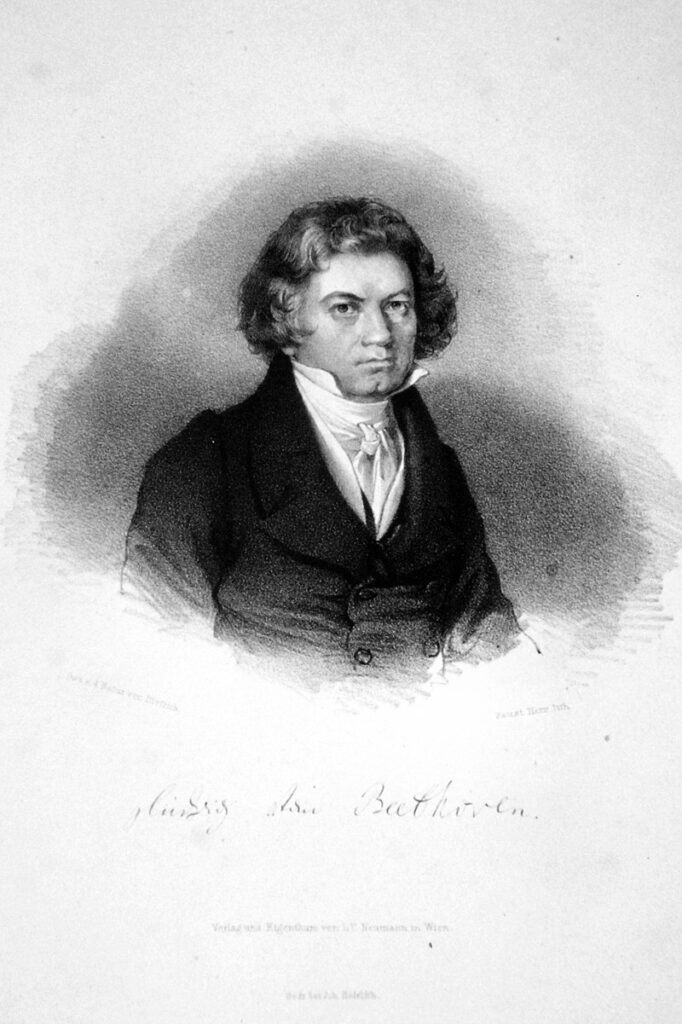Music being the art to which all others aspire, it is unsurprising that its climaxes claim moments that pictures or writing or talk can never convey.
The hope which emerged upon Napoleon’s collapse in Russia is rendered triumphant in the 1812 Overture.
Another climax was upon the mess of a war economy four years before. Ludwig van Beethoven needed money and he decided to raise it. On 22 December 1808 and in the way of the time, he held a charity concert for himself.
An audience was sat in Vienna’s Theater an der Wien for four cold hours to hear among other works four premieres, the Fifth Symphony, the Sixth Symphony, the Fourth Piano Concerto and the Choral Fantasy, the last having the theme which would develop into the Ninth’s Ode to Joy.
The consensus was and remains that the players weren’t up to the music. A shortage of talent and time played its role. It was also the last time Beethoven with his increasing deafness would deliver a piano solo. He famously stopped and restarted, humiliating the players and explaining later that he did so because the paying public were entitled to value.
Beethoven was a bridge between the classic and the romantic. Here is a review of the Fifth Symphony written two years later by a father of romanticism ETA Hoffmann:
The reviewer has never felt this in a livelier way than in the present symphony, which, in a climax that rises up to the very end, displays that romanticism of Beethoven more than any of his other works and irresistibly carries the listener away into the wondrous spirit realm of the infinite.
On the classic side of things is Carl Freidrich Abel, born 22 December 1723 and one of Mozart’s teachers. A transcription by pupil Mozart of a work by teacher Abel famously made its way by mistake into the former’s catalogue for a time. Incidentally, Beethoven by holding his concert 85 years to the day later managed to antagonise Antonio Salieri, who was trying to organize his own concert the same night, another charity affair but this time for widows and orphans. Salieri had been Beethoven’s teacher and, of course, Mozart’s.
On the romantic side of things is Giacomo Puccini, born 22 December 1858. He was close but not consistent friends with Toscanini, the latter famous for his Puccini and for his Beethoven. The story goes that during a spat Puccini had forgotten to remove the conductor from his Christmas list and sent the pannetone, with the exchange of telegrams being “Pannetone sent by mistake. Puccini.” and “Pannetone eaten by mistake. Toscanini.”
The seven O Antiphons aka the Great Advent Antiphons aka the Great Os have been sung by monks for centuries in the lead up to Christmas Day. They are the source for the verses of the hymn “O Come, O Come, Emmanuel”. The antiphon for 22 December is O Rex Gentium, O King of the Nations. Its words have been adapted for the hymn’s rarely sung seventh verse:
O come, desire of nations, bind
In one the hearts of all mankind
Bid Thou our sad divisions cease
And be Thyself our King of peace
Rejoice! Rejoice! Emmanuel
Shall come to thee, O Israel
